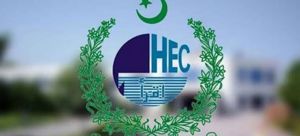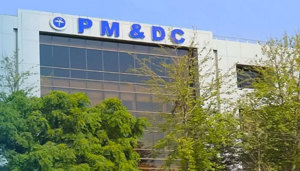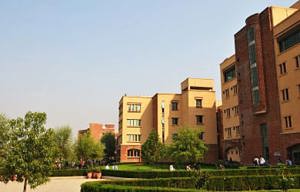
The Pakistan Association of Private Medical and Dental Institutions (PAMI) has voiced serious objections to a new fee cap recently imposed by the Pakistan Medical and Dental Council (PMDC), warning that the move could cripple the already burdened private medical education sector. With rising operational costs, inflation, and lack of governmental subsidies, private colleges argue that the PMDC’s decision is not only premature but also unsustainable.

PMDC Announces New Fee Structure
In its latest notification, PMDC has set a maximum annual fee cap of Rs. 1.8 million for students enrolled in private medical and dental colleges across Pakistan. Additionally, a 5% increase in the fee structure has been allowed for the 2025 session, making the maximum fee Rs. 1.89 million for the following academic year.
This move comes amid growing concerns regarding the affordability of medical education in Pakistan. PMDC claims the new cap aims to create a more equitable system for aspiring medical students while ensuring that private institutions do not exploit families through excessive tuition charges.
PAMI's Response: A Sector Under Threat
The response from PAMI has been swift and direct. In a press release, Dr. Riaz Janjua, Secretary General of PAMI, criticized the PMDC’s decision as “unworkable” and “untimely,” claiming that the policy undermines both operational realities and prior commitments already made by private colleges.
According to Dr. Janjua, many institutions had already set and collected tuition fees exceeding Rs. 1.8 million in line with Section 20(7) of the PMDC Act 2022, which allows private institutions the autonomy to determine their fee structures before the admission process begins.
“These regulations cannot be applied retroactively,” Dr. Janjua emphasized. “Fees already collected cannot be refunded or adjusted without violating the contracts made with enrolled students and their families.”
Government's Stance and Previous Consensus
PAMI also highlighted a previous meeting chaired by Deputy Prime Minister Ishaq Dar, where it was agreed that institutions charging between Rs. 1.8 million and Rs. 2.5 million would be required to submit detailed financial justifications to the PMDC. This arrangement was seen as a middle ground that allowed operational flexibility while maintaining oversight.
As per that agreement, a fee review committee was to be formed, comprising representatives from both PMDC and PAMI. The purpose of this joint committee was to review audit reports and financial statements to ensure transparency and affordability. However, this committee has not yet been officially constituted, leading to further mistrust and confusion between the regulatory body and private institutions.
Financial Sustainability in Question
Private medical and dental colleges in Pakistan argue that the Rs. 1.8 million cap does not reflect the actual cost of delivering quality medical education. These costs include salaries of highly qualified faculty, investment in modern infrastructure, laboratory equipment, and hospital affiliations for clinical training.
With inflation rates soaring and the Pakistani rupee’s value declining, PAMI contends that the sector is being forced into a corner. “Many colleges will find it impossible to operate under such financial restrictions,” said a college administrator who wished to remain anonymous. “Ultimately, the quality of education will suffer, and fewer students will have access to reputable medical training.”
Proposal to Increase Fee Cap
In response to the PMDC notification, PAMI has now proposed a revised fee structure. The association recommends that:
-
All fees up to Rs. 2.6 million should be exempt from scrutiny.
-
The upper fee cap should be raised to Rs. 3.2 million, allowing institutions greater financial room to maintain educational standards and invest in infrastructure.
This proposal, PAMI argues, is more in line with the ground realities and takes into account both the cost of quality education and the financial burden on students and families.
Legal and Ethical Concerns
One of the primary concerns raised by private institutions is the retroactive application of the new fee cap. Many argue that since the fees were announced and collected before the PMDC’s latest directive, changing the rules mid-cycle would not only be legally questionable but also ethically unfair to institutions and students alike.
Legal experts have echoed this sentiment, noting that applying new regulations retroactively violates the principles of administrative justice. “If the policy was not in effect at the time the fee was set, institutions should not be penalized for following existing laws,” noted an Islamabad-based legal analyst.
Impact on Students and Parents
While the debate continues at the policy level, students and their families remain caught in the crossfire. On one hand, lower fee caps are seen as a relief for middle-income families who struggle to afford medical education. On the other hand, compromising educational quality due to inadequate funding could prove counterproductive in the long run.
Several parents have voiced concerns that if colleges are forced to downsize or cut costs, students may suffer from overcrowded classrooms, outdated facilities, and fewer practical opportunities, all of which are essential for comprehensive medical training.
A Call for Balanced Regulation
PAMI has called upon the PMDC and the federal government to adopt a collaborative approach rather than an authoritarian one. The association insists that any future fee policies should be:
-
Based on transparent financial audits
-
Developed through stakeholder consultations
-
Applied prospectively, not retroactively
-
Designed to protect students without crippling institutions
“Regulation is important,” Dr. Janjua acknowledged, “but it must be balanced with practicality. Otherwise, we are setting up our future doctors and dentists for failure.”















